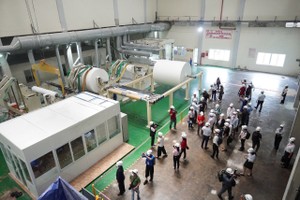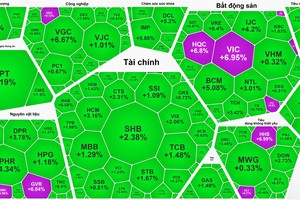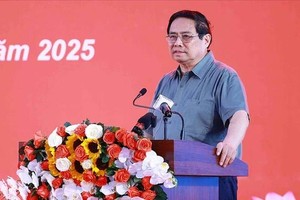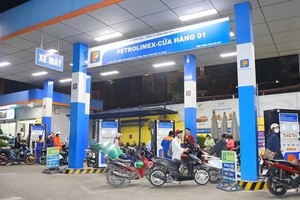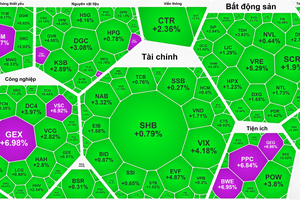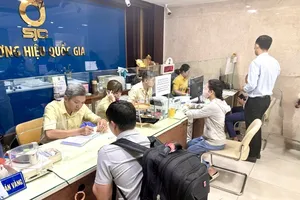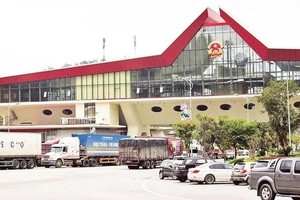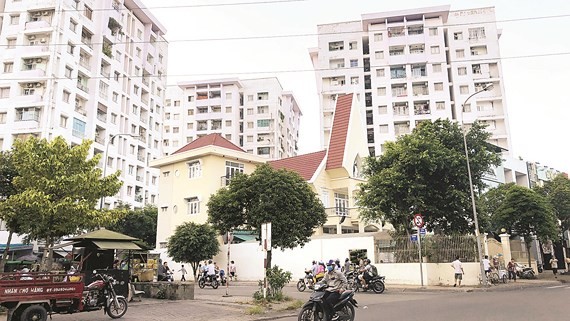
Three years after the VND30 trillion package ending, social housing funds has been allocating to banks.
Vietnam Bank for Social Policies has received VND1,262 billion, meeting about 13 percent of the capital demand in the phase of 2018-2020. In 2018 along, it has got VND500 billion.
With the year allocation of VND500 billion, the bank is entitled to mobilize an extra of the same amount to implement social housing policy, taking the total number to VND1 trillion. In fact, this capital source has been delivered to provinces and cities to loan with the interest rate of 4.8 percent a year.
Mr. Tran Van Tien, director of the bank branch in HCMC, said that the branch has received VND50 billion this year and it is used for loaning house buyers not for project investors. So far, the bank has disbursed the funds to 11 cases including two house repairs and nine social housing purchasers at projects of Chuong Duong, Saigon and Nam Long real estate companies.
Explaining why only few have been loaned and they are customers of the above projects, Mr. Tran Van Tien said that because these projects are mortgaged at commercial banks for loans as per regulations.
From now until the end of the year, the bank will disburse the funds to 35-40 social housing buyers, each of them will receive about VND250-300 million.
Mr. Tien affirmed that the social housing loaning program accords the Government’s Decree 100 with unlimited amount of funds and loan time. So residents do not have to concern that their documents will expire for not being done in a timely manner.
Besides the funds from the Social Policies Bank, the State Bank of Vietnam (SBV) has assigned four commercial banks namely BIDV, Vietcombank, Vietinbank and Agribank to provide loans for urban poor people to buy houses with the interest rate of 5 percent a year within 15 years.
Although these banks said that they are ready to loan, residents have yet to be able to get the funds because the state budget management has not arranged capital for the commercial banks to make up the interest rate difference.
SBV has worked with relevant agencies to propose the Government and the Prime Minister to report the problem to the National Assembly Standing Committee to consider supplementing budget funds of VND3,431 billion to make up the interest rate difference. However, the funds has not been arranged.
According to Mr. Le Hoang Chau, chairman of HCMC Real Estate Association (HOREA), the capital source will reach the poor only when it is approved by the Standing National Assembly Committee because the committee’s Resolution 1023 issued on August 28, 2015 does not comprise social housing program in the list of target programs, so there has been no spending from budget funds.
Aside from budget funds allocation congestion, house buyers have faced difficulties in loan approval procedures. For instance, HCMC now has 41 social housing projects under construction but only customers of Chuong Duong, Saigon and Nam Long companies’ projects are eligible for getting preferential interest loans because investors do not mortgage their projects for bank loans.
The requirement is legal but unpractical because very few investors of housing projects do not get bank loans. This is a big congestion making residents unable to access preferential bank loans, said Mr. Le Hoang Chau.
Therefore, Mr. Chau proposed the Government to have a mechanism to clear the above congestion for house buyers to get social housing loans instead of depending on the state budget.
The Housing Law stipulates that investors of all commercial housing projects must be responsible for arranging 20 percent of their projects’ land fund for social housing program.
In addition, projects with the scale from 10 hectares and more must build social housing right at their projects. This regulation is unsuitable with many different projects. So HOREA proposed to permit businesses to chose building or not building social housing at their projects. If they do not build, they should be allowed to make a payment for social housing development.
This flexible way of doing will bring the state an abundant financial source to meet the huge demand of social housing in localities to make low income peoples’ housing dream true.
